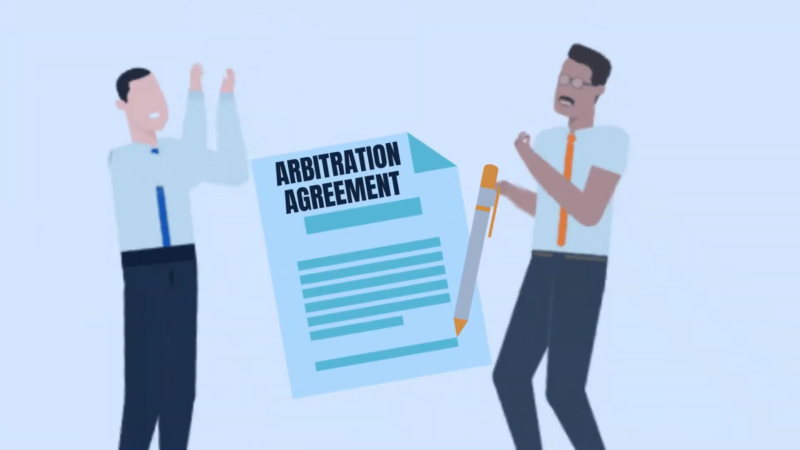Arbitration often starts from contracts, especially in jobs where these clauses are common. Some state courts even require arbitration before you can go to trial.
So, lawyers might find themselves handling arbitration more than expected.
Despite its informal vibe and simpler rules, prepping well is key.
For clients, arbitration can be as critical as a trial, so thorough preparation is crucial for the best results.
This article will show you how to get ready for an arbitration hearing effectively.
1. Prepare Your Client

Preparing your client is crucial for a successful arbitration hearing. Many clients may lack experience with arbitration, so it’s important to clearly explain the process and expectations.
Consulting with an experienced mentor can provide valuable insights. The goal is to ensure the client is ready to act as a credible witness and understands what the arbitration will entail.
While arbitration may seem more informal than a courtroom, clients should still approach it with the necessary seriousness. Holding a mock arbitration session can be beneficial for familiarizing the client with the flow of the hearing and potential questions from arbitrators or opposing counsel. Reinforce the importance of both relaxation and professionalism to balance their demeanor during the hearing.
Encourage the client to remain composed and attentive, reminding them that preparation and understanding of the procedure play a key role in presenting a compelling case.
2. Manage the Hearing Day
Approaching an arbitration hearing with casualness can hinder the potential for a favorable outcome. Attorneys must avoid this common pitfall.
Begin by arriving early to organize your materials and give them a final review. Although arbitration hearings are less formal than trials, the same level of preparation and professionalism is necessary. Keep critical documents easily accessible, ensuring they are organized and ready for reference. It’s crucial to make sure your clients are well-prepared and presentable for the occasion.
Maintaining a calm and professional demeanor throughout the hearing is essential. This approach not only benefits the case at hand but also contributes to developing into a more competent litigator over time. Each arbitration handled with the seriousness it deserves enhances an attorney’s skills and reputation.
For attorneys seeking to refine their career, InfoTrack’s blog offers valuable advice and strategies for professional development.
3. Conduct Preliminary Research and Gather Information

To develop a robust strategy, begin by gathering the relevant laws that pertain to the dispute at hand. Breaking down the essential elements of each claim or defense is crucial to framing the case accurately.
Even if prior discovery has occurred, it is important to collect all essential documents and evidence supporting the arguments. Understanding the nuances of evidence in arbitration, as opposed to traditional court cases, is vital. Reviewing resources like the Best Practices Regarding Evidence in Arbitration can provide valuable insights.
By systematically compiling and scrutinizing the necessary information, one ensures that the case is both well-prepared and comprehensively supported.
For a more detailed understanding of arbitration processes and to learn more here about practical strategies, reviewing additional legal guides can be very beneficial.
4. Draft the Opening Statement

Delivering an opening statement in an arbitration setting is essential and should be meticulously crafted. A well-prepared opening statement can set the tone for the entire process by favorably framing the most important issues for the arbitrator.
Key Elements to Include
- Core Issues: Outline the main points concisely.
- Relevant Laws: Clearly state the applicable laws.
- Client’s Favor: Briefly explain why the decision should be in the client’s favor.
Tips
- Avoid turning the statement into an argument or speculation.
- Focus on making the case clear and comprehensible for the arbitrator.
- Practice beforehand to ensure clarity and effectiveness.
The arbitrator will appreciate a compelling and straightforward presentation that aids in understanding the crucial aspects of the case.
5. Understand the Arbitration Agreement Deeply

Reviewing the arbitration agreement is crucial as it outlines key aspects such as the selection of arbitrators and procedural rules. Different agreements may have varying clauses, and previous experience with one arbitration case does not guarantee readiness for all.
Thoroughly understand every detail of the agreement to know exactly what the parties have committed to. This involves paying close attention to specifics and not just skimming through the document.
Being well-versed in the agreement is essential before moving forward, ensuring that all stipulated guidelines and parameters are acknowledged and followed. Attention to detail here can profoundly impact the arbitration process.
6. Know Your Arbitrator
In arbitration, parties have the opportunity to choose the person who will preside over the proceeding. It is crucial to conduct thorough research on potential arbitrators. Consider professionals with relevant expertise or perspectives that align with your client’s stance.
Identify any patterns in an arbitrator’s decision-making process. Some may favor certain types of resolutions. For instance, review the history of retired judges if they are among the options. Understanding their previous rulings on similar issues can provide insight. If their past decisions contradict your client’s interests, selecting a different arbitrator is advisable.
Steps to Choose an Arbitrator
- Research thoroughly
- Evaluate expertise and perspective
- Analyze decision-making tendencies
- Review past rulings of retired judges
7. Understand the Applicable Rules

Often, arbitration agreements specify an organization such as the American Arbitration Association (AAA) or Judicial Arbitration and Mediation Services, Inc. (JAMS) to oversee the arbitration. Knowing which body will manage the arbitration is crucial, as each organization has distinct sets of rules and procedures.
AAA has specific rules tailored to different types of disputes. A commercial dispute, for instance, is governed by a different set of rules than a construction dispute. JAMS, similarly, has its own comprehensive rulebook.
To effectively navigate the arbitration process, practitioners should thoroughly acquaint themselves with the relevant rules and procedures that apply to their specific case. This ensures that all actions are in compliance, thus fostering a smoother arbitration process.
Related Posts:
- How to Expand Your Legal Practice Without Losing…
- How to Simplify Web Application Design Without…
- What Happens When Winning Feels Like Losing? The…
- How to Keep Your Home Clean Without Breaking the Bank
- How to Turn On Laptop Without Power Button? - 6 Easy Methods
- Windows Application Publishing ─ Streamlining Access…







